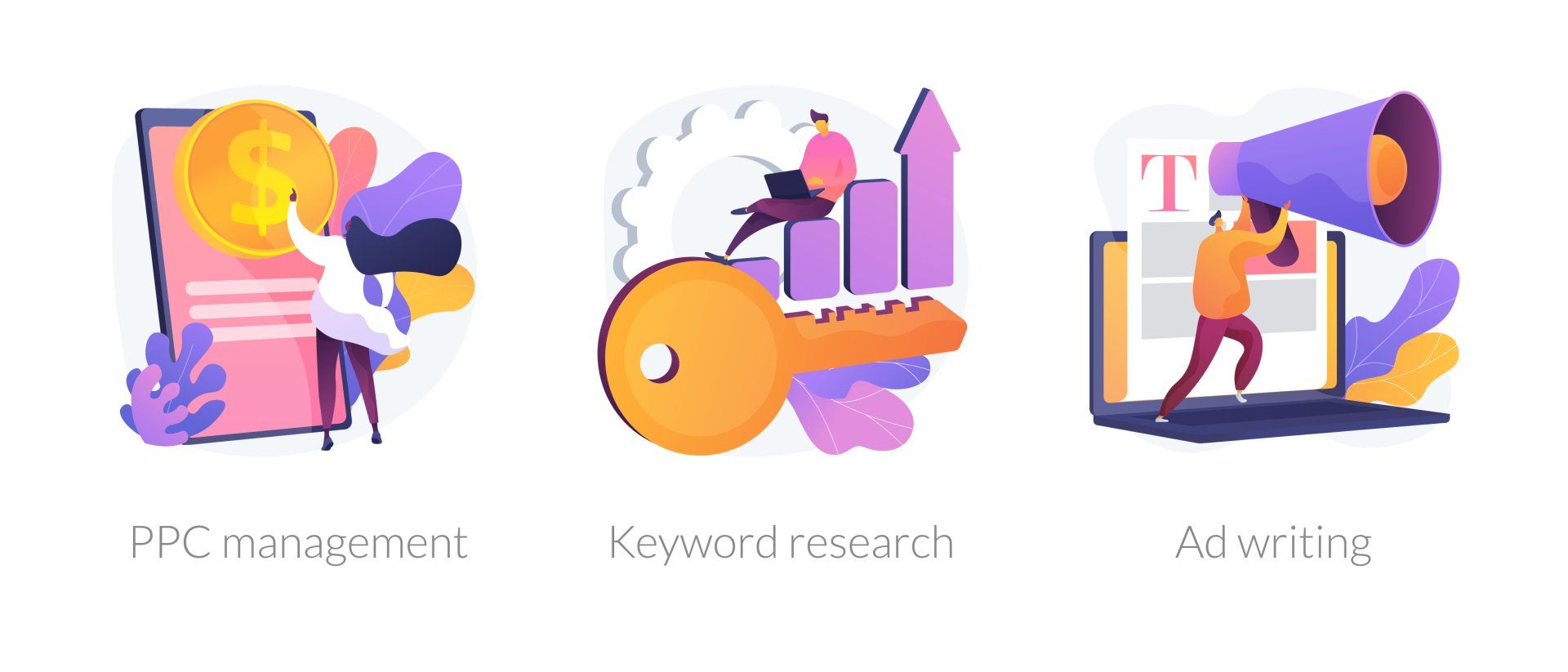How Can Pay-Per-Click Advertising Help Your Business?

When you have been in need of a service, such as HVAC or roofing, you may have looked up local service providers on Google. The first links that appear at the top of the page with the word “Ad” next to them are pay-per-click (PPC) ads. If you click on one of those ads, it will take you to what’s called a landing page, and that business will be charged.
The cost of each click is determined by how much that business is willing to pay, or bid. And how much they are willing to bid is affected by various factors, like how much revenue the business expects from a single job, or the average cost per click that other businesses in the same industry are paying. However, there are other factors at play when it comes to determining which businesses will have their ads displayed.
As I’ve mentioned in previous articles, when you advertise with Google, you become subject to their ranking system. They use a complex algorithm to assess businesses’ websites, judging them based on their security, speed, reliability, and so much more. They will rank your ads, too, based on things like relevance and the overall quality of the ad. That, along with the bid amount, is how Google picks which ads to display on the SERP.
Should Your Business Run a PPC Campaign?
PPC campaigns are usually worth the cost because you only pay if somebody visits your website. And if somebody visits your site, then you have a better chance of getting a new customer than if they simply heard your ad on the radio or drove past your billboard. And the revenue you take in will more than make up for the low cost of the click.
While the end goal of a PPC campaign is to increase revenue, they are also great for generating more leads, and promoting awareness of your brand/business. If you are worried the cost might add up, or you just want to test out a PPC campaign without fully committing to it, you can choose an ad delivery method that will work for you.
The standard delivery option will ensure your ad is shown throughout the day, but not the entire day. The accelerated option will show your ad constantly until your daily budget is hit. Both will adhere to your budget, but if it’s a higher budget, then you may want to choose the accelerated delivery method to increase your ad’s visibility.
PPC advertising is a proven way to get users to look at your website. It’s effective, and you can easily manage your spending while also measuring your ROI. If you are unsure about trying PPC, you don’t have to dive into it. Test the waters first by setting a low daily budget and see what kind of results you get.
How it All Works
If you are considering PPC advertising, then you should know a bit more about how it works. Or, if you prefer to let professionals take care of the details, you can pay a digital marketing agency to handle it all for you. Whether you are just taking PPC for a test drive or want to go full steam ahead with it, these tips will help.
When creating your ad, you have to pick keywords to bid on. They don’t have to be single words, you can use phrases. Those keywords are what you expect users will search for when they are in need of whatever service you provide. The more relevant your keywords are to the users’ searches, the more likely your ad is to be shown. There are various keyword match types you can use to ensure you cover all your bases. Here are some:
- With Broad Match keywords, your ad may appear if the users’ search query includes any of the words in your key phrase, and in any order. For example, let’s say your keywords are “local roofers.” If a user searches “roofers in local area,” your ad can still show up. These keywords will still work if the user types in synonyms.
- Phrase Matches offer a little more control over who exactly will see your ad. User queries must include your whole keyword phrase in the right order, but if they add words before or after the phrase, your ad is still eligible to appear. If your keyword phrase is “roofing services,” and a user types “local roofing services,” or “roofing services in my area,” they could still see your ad. Like broad matches, synonyms will work here.
- If you want to be as precise with your keywords as possible, then you should use Exact Matches . For these to work, a user’s search query must match (almost) exactly with your keywords. I say “almost” because Google has updated these so that they will still match even if the user’s query has slightly different wording but the same intent. If your keyword phrase is “roofer services,” a user’s query would have to also be “roofer services,” but if they typed “roofer service,” it would still work as the intent is the same.

If setting a daily budget for your ad campaign isn’t enough control for you, there are bid modifiers you can use. These modifiers can be applied to specific situations. For instance, if you want your ad to be shown at certain times of the day, you can set a modifier on your bid and pay more for clicks during that time. Alternatively, you could modify the bids to decrease during times you may not expect much traffic. This is just one more way for you to manage your costs and ultimately decide how you spend your budget.
There are a number of extensions you can apply to your ads to give the user more information about your services before they even click on the ad. Here are a few of those:
- Sitelink Extension: These are links that are added to the bottom of your ad. They will ideally take the user to a different landing page than your main link. These can have short descriptions beneath them
- Location Extensions: If you want to include your business’s address in your ad, you use these extensions.
- Call Extensions: On a desktop or tablet, this extension is simply your business’s phone number. On mobile devices, however, the call extension adds a “click and call” button to your ad. That way, users can instantly contact your business.
- Consumer Rating Annotations: These are good if you have a lot of positive reviews that you want to show off. You can opt in for this extension and Google will automatically populate your ad with reviews it has gathered from various sources.
- Seller Rating Extensions: These are similar to consumer rating annotations, but instead of whole reviews, your average rating (out of five stars) will appear in your ad. This will only work for you if your business has had 30 or more reviews with at least four stars over the past year.
I could go on for several more pages about what makes a great PPC campaign--this is just the tip of the iceberg. If it just seems like too much, don’t give up on the idea! PPC is a great way to increase sales, generate leads, or even just increase brand awareness. If you aren’t sure where you should even begin, give us a call or send us an email, and we would love to lend a helping hand.
Thanks for reading and stay tuned for more!


